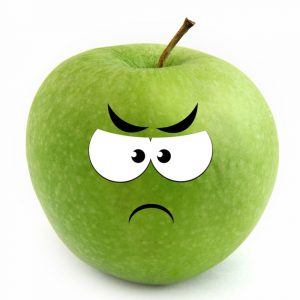5 reasons the Apple-Samsung ruling is BAD for everyone
 Apple v. Samsung is a game of thrones. Their latest episode is far from any quarrels the two have had in the past, which now look like child's play compared to what happened in San Jose, California. If the outcome of the trial is of any indication what we're looking at is a major game changer in the smartphone and tablet industry, and not for the better.
Apple v. Samsung is a game of thrones. Their latest episode is far from any quarrels the two have had in the past, which now look like child's play compared to what happened in San Jose, California. If the outcome of the trial is of any indication what we're looking at is a major game changer in the smartphone and tablet industry, and not for the better.
iOS won, and Android lost. That's one simple way to look at it, and that's only the tip of the iceberg. Sadly what we're looking at is a much deeper influence that will be felt in the near future. Here are five reasons why the ruling is BAD for the industry. (Editor: See Wayne Williams' response "5 reasons the Apple-Samsung ruling is GOOD for everyone".)
1. Targets consumer choice. Apple fears Android and what better way to shake the feeling than harming its largest supporter? Samsung currently sells 59 Android smartphones in the United States and Apple has targeted exactly that: consumer choice. While the Cupertino, Calif-based corporation only released five iterations of the iPhone in five years, Samsung currently sells more than 11 times as much in just one country. Apple is attempting to diminish the threat of substitute products and services.
Then there is the money angle...
While Apple only sells expensive smartphones and tablets, Android can be found in some of the cheapest devices around simply because of its free, open-source nature. Android devices are a potential substitution and also a cost leader.
2. Places a target on competitors. This is the first major win for Apple in their "thermonuclear" war against Android, and it's also the most significant ever since the declaration of war. Steve Jobs once said: "I'm going to destroy Android, because it's a stolen product. I'm willing to go thermonuclear war on this," and while it may sound over the top it simply implies that the "war" is far from over.
Samsung is just one Android manufacturer and since it's the largest, it's the most logical first target. But what about HTC or LG? Both companies could be targeted by Apple in the near future, with HTC and Apple already having a courtroom history together.
3. Diminishes differentiation. Out of all devices that were the subject of the trial, only one ran stock Android: Samsung Galaxy Nexus S 4G, which is far from being a relevant device on today's market. The newer Samsung Galaxy Nexus, which was found to infringe upon Apple's local search patent in June, was not part of the trial supporting the theory that vanilla Android is less prone to patent disputes than Samsung's Android-based TouchWiz.
This is reason enough to hope that Samsung will restrain to some extent from moving too far away from the Google-intended experience, and that we will see more smartphones and tablets running stock Android. While this can be viewed as a good thing, it also means that some of the charm of AOSP-based Android OEM builds could fade. In other words, it's free to build upon, but build at your own risk.
4. Damages Android's reputation. Let's face it, most people don't understand that there's a difference between Android-based TouchWiz and Android; or between Samsung's modified version of Android and Google's "stock" Android. The trial has certainly made a dent in Android's reputation now that Samsung lost the trial, it makes the little green robot subject to accusations of imitating iOS functionality which do not reflect the real story. That might not matter to the general consumer who sees "Android" on the box or in the specifications of a smartphone or tablet, therefore setting the foundation for criticism.
5. Stealing is bad (only for others). Apple, which can now claim to be an innovator in the industry, can point fingers at Samsung blaming the Korean-based manufacturer to have copied its products. Apple founder and former CEO, Steve Jobs once said that Apple is "shameless stealing great ideas" but when Samsung is accused to do the same thing it's wrong. It promotes the conception that "Apple can steal, but others are not allowed to" which is plain and simple indulging in hypocrisy.
Either everyone is allowed to copy or no one is. It's plain and simple and there should be no distinction.
The ruling creates more issues than it solves
Apple vs Samsung is problematic and these are just five examples on why the ruling is bad for the industry; it favored Apple, not the smartphone and tablet market as a whole, creating a dangerous precedent for future similar cases.
How do you think the ruling affects the industry?
Photo Credit: Art Konovalov/Shutterstock
